The Playful Citizen launched at SPUI25
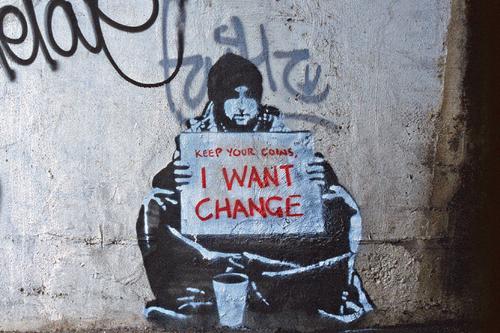
The Playful Citizen is the inaugural publication in the book series Games and Play which was launched last night at SPUI25 in the centre of Amsterdam. The book, available to download for free in open access, seeks to further our interdisciplinary understanding of how media and citizenship can converge in contemporary culture through the lens of play.
The speakers who contributed to the collection were Sybille Lammes, Jeroen Jansz, Joost Raessens, Ingrid Hoofd, and Michiel de Lange, moderater for the evening. In discussion of their chapters the speakers unified on the sustained focus on what is considered as ludic and playful civic engagement.
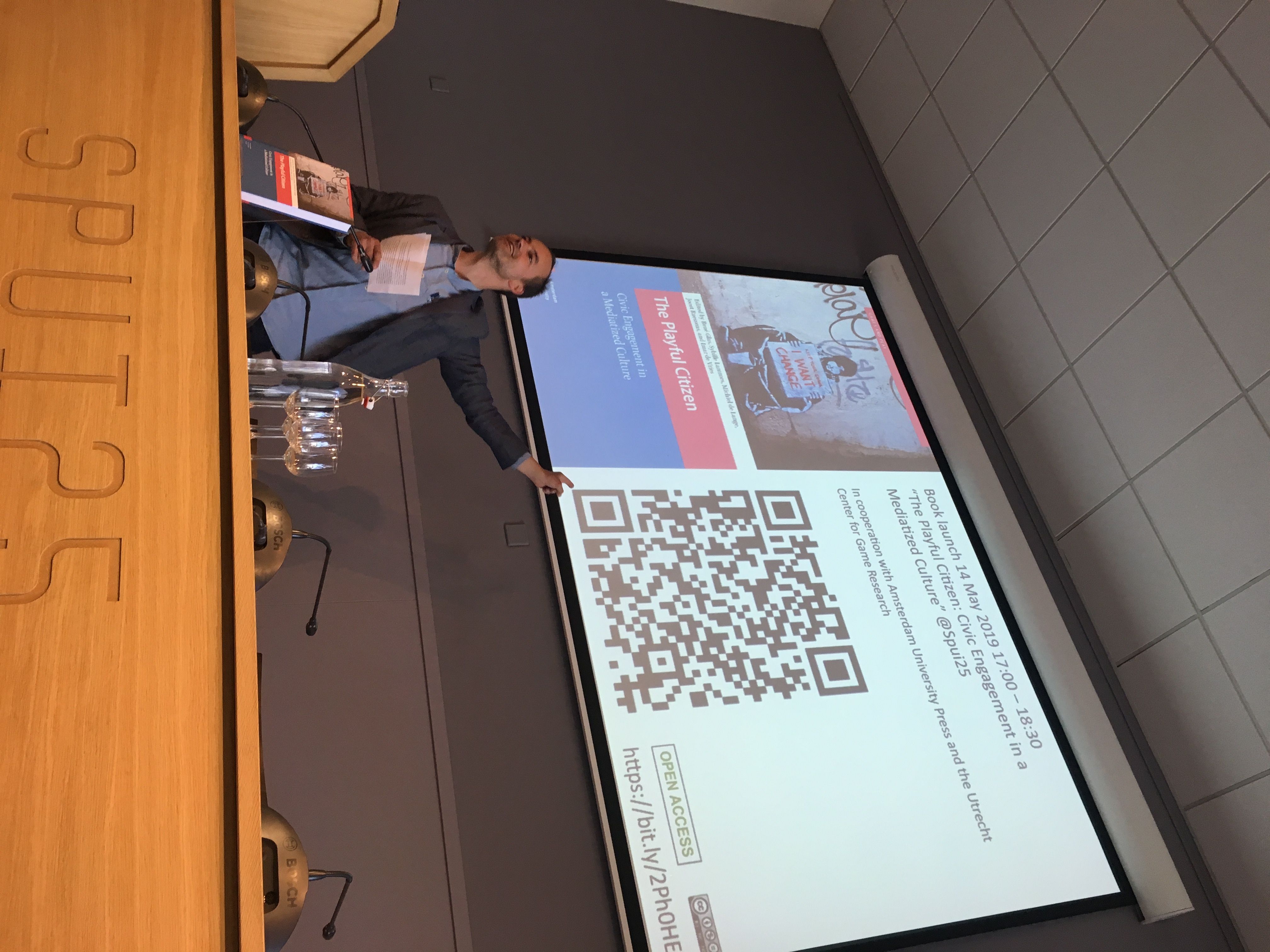 Michiel de Lange opening the launch and sharing the QR code linking to the book page for The Playful Citizen
Michiel de Lange opening the launch and sharing the QR code linking to the book page for The Playful Citizen
Ludification and citizenship
The first speaker Sybille Lammes, full professor of New Media and Digital Culture at Leiden University and one of the co-editors of the book, offered an overview of the book's structure and introduced each section and chapter. Each section ask the questions, if we have become more playful as citizens, how is this manifested in our daily lives? Which media practices show the reciprocal relationship between ludification and citizenship? And should these practices be viewed as new ways to enhance and change the agency of citizens, or rather as facilitating and maintaining dominant hegemonies or assemblages of power?
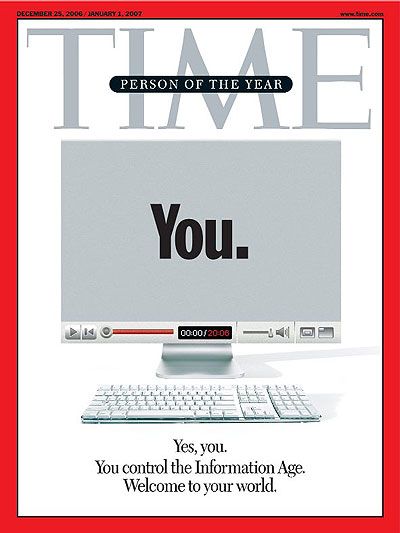 Time Person of the Year, 2006. Photo-illustration for Time by Arthur Hochstein, with photographs by Spencer Jones
Time Person of the Year, 2006. Photo-illustration for Time by Arthur Hochstein, with photographs by Spencer Jones
You.
Jeroen Jansz, full professor of Communication and Media at Erasmus University Rotterdam, takes his optimism from 2006 - the year of opportunities for participatory culture, using the internet for beautiful causes, producing user generated content - components of which ultimately led to questions of citizenship and solidarity. Jeroen closed with the statement,
Whatever the individual (personality) differences, the lean-forward medium of games will always be able to engage citizens, because of the playful nature of humankind.
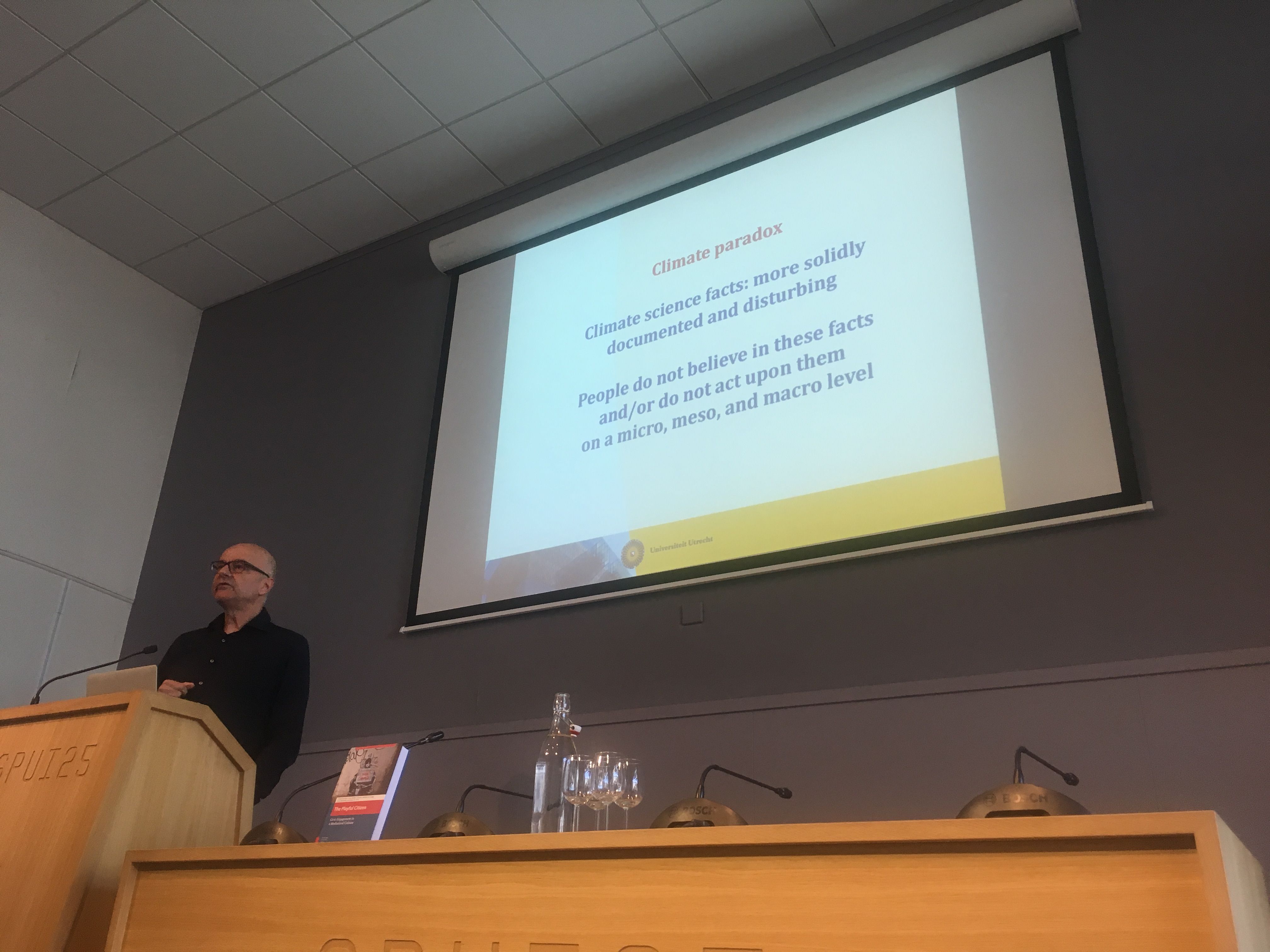
Games for change
Climate change is one of the most pressing socio-political issue of our time. The third speaker Joost Raessens, full professor of Media Theory at Utrecht University, discussed the role of ecogames in helping to solve the climate change paradox. Looking at examples such as Games for Cities as a guide-book for policy makers, eco mods, jams and apps like Climate Quest (2015) and Ecology Mod Minecraft (2017), and counter-discourses in eco science fiction games such as Mass Effect: Andromeda (2017) and Prey (2017), Joost explored the possibilites of ecogames to make people become global ecological citizens. His piece finished with the statement that ecogames can help in fighting climate change not only on a micro, but also a meso and macro level of change.
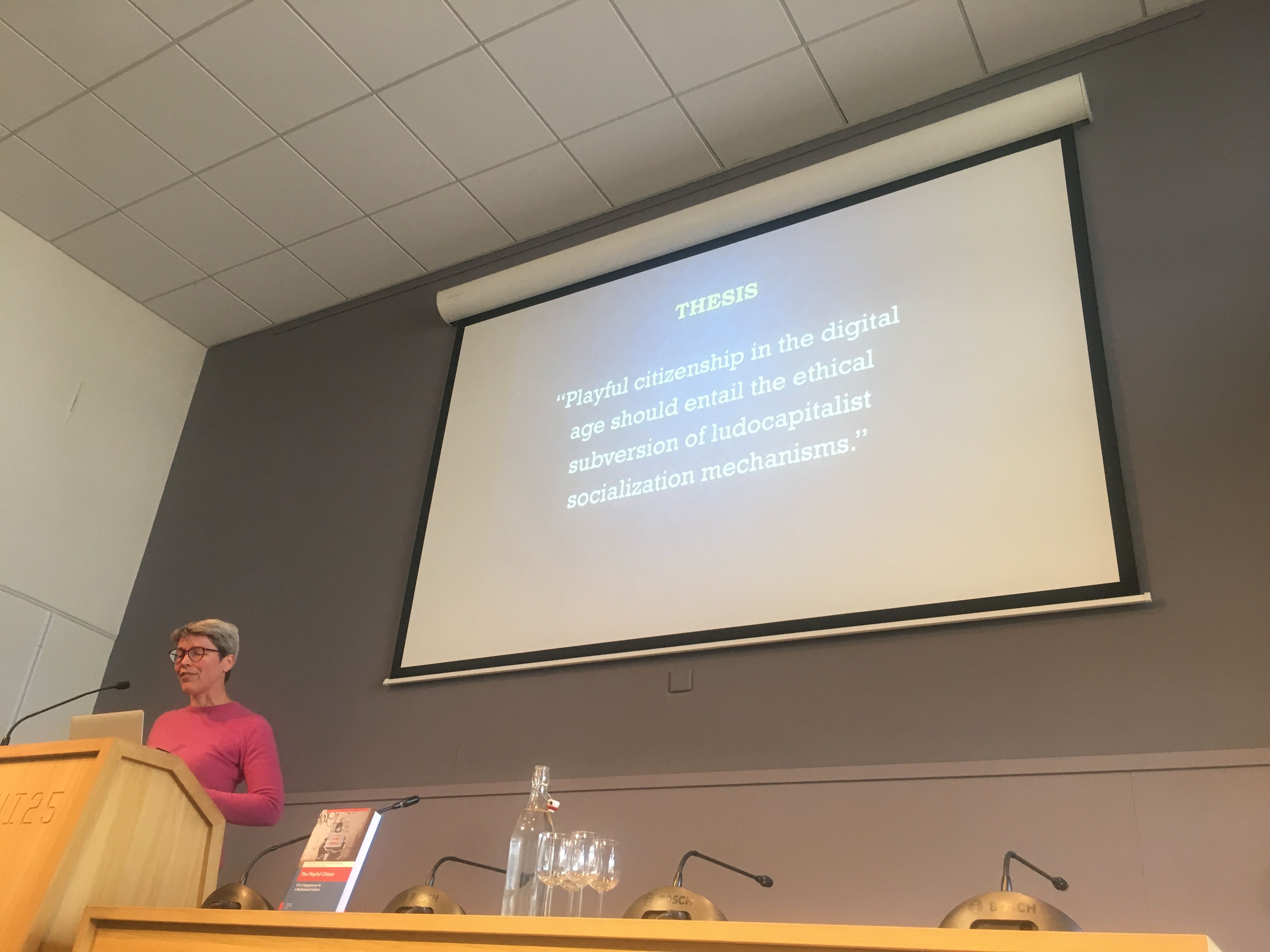
Gaming is ambigious
To offer a critical response to the afforance of digital and mobile technologies in gaming and civic engagement, Ingrid Hoofd, assistant professor of New Media and Digital Culture at Utrecht University, asks,
“How may video games aide (or not!) in morally upright civic engagement by young people?”
According to Ingrid, to answer this we must look at games and play in relation to new forms of global capitalism and militarised masculinity. Quoting Jean Baudrillard Modern repression is carried out in the name of play, Ingrid accepts that play carries radical potential but says that we must be aware of the perhaps too optimistic view of how games can positively engage a citizen; positive and radical civic engagement may only be achieved by trangressing the oppressive social structures of which the world of gaming currently belongs.
Gaming is paradoxical
In the discussion panel, Michiel de Lange paid excellent attention to the differing opinions showcased in both Ingrid and Jeroen's pieces, leading to a debate on the question of how technology and gaming actually enables citizens. The ambiguity of games and digital play, however, was ultimately agreed by all speakers, with Sybille somewhat ironically reassuring us that gaming is inherently paradoxical and Joost confirming that whatever we say games are, they are not.
50% discount on printed book or download the book
The Playful Citizen is available to buy from our website at a special event discount of 50% with the promo code: PLAYFUL50. This code is valid for two weeks and will expire on 28/05/2019. The book is also available to download in open access via JSTOR and OAPEN.
Thank you
Thank you to SPUI25 for hosting the book launch, the Utrecht Center for Game Research, and all the authors of this book.
